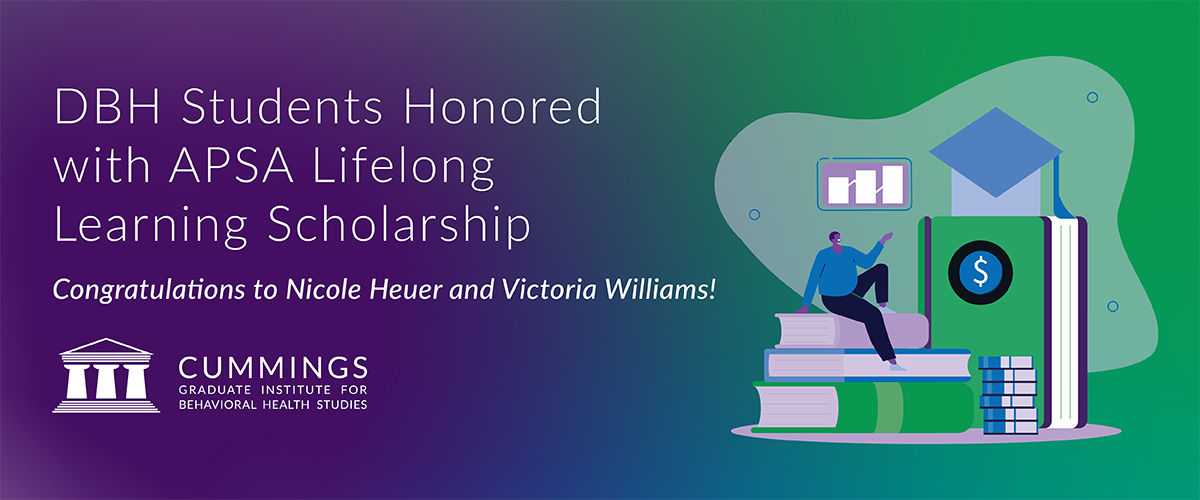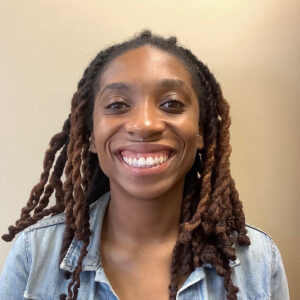
Cummings Graduate Institute for Behavioral Health Studies (CGI) is pleased to announce that Nicole Heuer and Victoria Williams, students in the Doctor of Behavioral Health (DBH) program, have been awarded the Arizona Private School Association (APSA) Lifelong Learning Scholarship. The recipients were formally recognized during the APSA Annual Conference luncheon held on Friday, October 10, 2025.
The APSA Lifelong Learning Scholarship honors adult learners who exemplify perseverance, professional purpose, and a demonstrated commitment to advancing their fields through continued education. CGI is proud to see the achievements and aspirations of its DBH students recognized through this distinguished award.
About the Scholarship Winners
 Nicole Heuer, MS, BCBA, LBA
Nicole Heuer, MS, BCBA, LBA
Nicole Heuer, MS, BCBA, LBA, is a Board-Certified and Licensed Behavior Analyst in New York State and DBH student at CGI. She serves as a school consultant at the elementary level, where she not only provides behavioral support but also fosters environments that highlight each student’s strengths. Nicole believes that meaningful progress is achieved when accommodations are viewed not as limitations, but as bridges that allow children to fully access their potential. In her work, she emphasizes teaching perspective—helping educators and families see challenges through a new lens so that collaboration is grounded in empathy, equity, and respect. As a neurodiverse professional, Ms. Heuer is dedicated to advocacy and advancing health equity, with a particular focus on reducing disparities in outcomes for autistic children and adults. Her work underscores the importance of awareness, education, and treatment adaptation to ensure that care systems are inclusive, accessible, and responsive to diverse needs.
In reflecting on the significance of the award, the Nicole shared:
“As a doctoral student in the DBH program and a professional with autism, maintaining balance across work, school, and personal life is essential to both my mental health and my performance in all areas. The Lifelong Learning Scholarship provides critical support by easing the financial demands of my education, allowing me to prioritize my academic and personal well-being without taking on additional work. This opportunity enables me to fully invest in my doctoral training while also prioritizing my own needs as a neurodiverse individual.”
 Victoria William, BCBA
Victoria William, BCBA
Victoria Williams is a DBH student and Board Certified Behavior Analyst (BCBA) in Arizona, primarily working with the neurodivergent population under 18. Since the birth of her brother with Downs Syndrome, Victoria has been working with special needs children in both professional and volunteer-based settings. Victoria hopes to continue working with this population with the goal to de-stigmatize disability through education and practicing intentional inclusivity.
Victoria expressed appreciation for the impact of the scholarship:
“I greatly appreciate the financial burden this scholarship will relieve. Although I’m very excited to attend CGI, I was anticipating using student loans to cover my tuition. However, I am grateful that this scholarship will help me continue on this path without relying solely on my personal funds. Receiving a scholarship from this particular agency really affirms that I’m on the right track with my mission. Once again, I can not express enough gratitude for this opportunity!”
Advancing the Mission of Integrated Behavioral Health
Nicole and Victoria embody the academic excellence, resilience, and professional commitment that the APSA Lifelong Learning Scholarship is designed to honor. Their selection reflects not only their individual achievements, but also the meaningful impact they are poised to make in the field of integrated behavioral health. CGI celebrates this recognition of their dedication and is proud to support their continued advancement as emerging leaders in integrated behavioral healthcare.





























